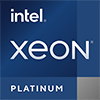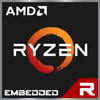
Intel Core i5-10600K Benchmark, Test and specs
Last updated:
The Intel Core i5-10600K was released in Q2/2020 and has 6 cores. The processor can process 12 threads simultaneously and uses a mainboard with the socket LGA 1200. In the Geekbench 5 benchmark, the Intel Core i5-10600K achieved a result of 1,254 points (single-core) or 6,877 points (multi-core).

| Name: | Intel Core i5-10600K |
|---|---|
| Family: | Intel Core i5 (331) |
| CPU group: | Intel Core i 10000 (43) |
| Architecture: | Comet Lake S |
| Segment: | Desktop / Server |
| Generation: | 10 |
| Predecessor: | Intel Core i5-9600K |
| Successor: | Intel Core i5-11600K |
CPU Cores and Base Frequency
The Intel Core i5-10600K has 6 cores. The clock frequency of the Intel Core i5-10600K is 4.10 GHz (4.80 GHz). An initial performance assessment can be made using the number of CPU cores.
| CPU Cores / Threads: | 6 / 12 |
|---|---|
| Core architecture: | normal |
| Cores: | 6x |
| Hyperthreading / SMT: | Yes |
|---|---|
| Overclocking: | Yes |
| Frequency: | 4.10 GHz |
| Turbo Frequency (1 Core): | 4.80 GHz |
| Turbo Frequency (6 Cores): | 4.50 GHz |
Internal Graphics
The Intel Core i5-10600K has an integrated graphics that the system can use to efficiently play back videos. The Intel Core i5-10600K has the Intel UHD Graphics 630 installed, which has 24 streaming multiprocessors (192 shaders).
| GPU name: | Intel UHD Graphics 630 |
|---|---|
| GPU frequency: | 0.35 GHz |
| GPU (Turbo): | 1.20 GHz |
| Compute units: | 24 |
| Shader: | 192 |
| Hardware Raytracing: | No |
| Release date: | Q4/2017 |
| Max. displays: | 3 |
|---|---|
| Generation: | 9.5 |
| Direct X: | 12 |
| Technology: | 14 nm |
| Max. GPU Memory: | 64 GB |
| Frame Generation: | No |
Hardware codec support
Processors with integrated graphics can process video codecs faster. Support for modern codecs can significantly increase system efficiency during video playback.
| h265 / HEVC (8 bit): | Decode / Encode |
|---|---|
| h265 / HEVC (10 bit): | Decode / Encode |
| h264: | Decode / Encode |
| VP8: | Decode / Encode |
| VP9: | Decode / Encode |
| AV1: | No |
|---|---|
| AVC: | Decode / Encode |
| VC-1: | Decode |
| JPEG: | Decode / Encode |
Memory & PCIeThe Intel Core i5-10600K supports a maximum of 128 GB memory. Depending on the mainboard, the processor can use a maximum of 2 (Dual Channel) memory channels. This results in a maximum bandwidth of the main memory of 42.7 GB/s. |
|
| Memory type: | Memory bandwidth: |
|---|---|
| DDR4-2666 | 42.7 GB/s |
| Max. Memory: | 128 GB |
| Memory channels: | 2 (Dual Channel) |
| ECC: | No |
| PCIe: | 3.0 x 16 |
| PCIe Bandwidth: | 15.8 GB/s |
Thermal ManagementThe Intel Core i5-10600K has a TDP of 125 W. Based on the TDP, the system manufacturer can and must adapt the cooling solution to the processor. |
|
|---|---|
| TDP (PL1 / PBP): | 125 W |
| TDP (PL2): | 182 W / 56 s |
| TDP up: | -- |
| TDP down: | 95 W |
| Tjunction max.: | 100 °C |
Technical details
Modern production reduces the waste heat of a processor and increases its efficiency. The Intel Core i5-10600K is made in 14 nm and has 12.00 MB cache.
| Technology: | 14 nm |
|---|---|
| Chip design: | Monolithic |
| Socket: | LGA 1200 |
| L2-Cache: | -- |
| L3-Cache: | 12.00 MB |
| AES-NI: | Yes |
| Operating systems: | Windows 10, Windows 11, Linux |
| Virtualization: | VT-x, VT-x EPT, VT-d |
|---|---|
| Instruction set (ISA): | x86-64 (64 bit) |
| ISA extensions: | SSE4.1, SSE4.2, AVX2 |
| Release date: | Q2/2020 |
| Release price: | 262 $ |
| Part Number: | -- |
| Documents: | -- |
Rate this processor
Benchmark results

The benchmark results for the Intel Core i5-10600K have been carefully checked by us. We only publish benchmark results that have been created by us or that have been submitted by a visitor and then checked by a team member. All results are based on and fullfill our benchmark guidelines.
Cinebench 2024 (Single-Core)
The Cinebench 2024 benchmark is based on the Redshift rendering engine, which is also used in Maxon's 3D program Cinema 4D. The benchmark runs are each 10 minutes long to test whether the processor is limited by its heat generation.

|
Intel Core i5-1135G7
4C 8T @ 4.20 GHz |
||

|
Intel Core i5-9600K
6C 6T @ 4.60 GHz |
||

|
Intel Core i5-9600KF
6C 6T @ 4.60 GHz |
||
|
|
Intel Core i5-10600K
6C 12T @ 4.80 GHz |
||

|
Intel Core i5-10600KF
6C 12T @ 4.80 GHz |
||

|
AMD Ryzen 7 4800HS
8C 16T @ 4.20 GHz |
||

|
AMD Ryzen 7 4800H
8C 16T @ 4.20 GHz |
||
Cinebench 2024 (Multi-Core)
The Multi-Core test of the Cinebench 2024 benchmark uses all cpu cores to render using the Redshift rendering engine, which is also used in Maxons Cinema 4D. The benchmark run is 10 minutes long to test whether the processor is limited by its heat generation.

|
AMD Ryzen 7 7730U
8C 16T @ 4.50 GHz |
||

|
AMD Ryzen 7 PRO 7730U
8C 16T @ 4.50 GHz |
||

|
Intel Core i9-9880H
8C 16T @ 4.80 GHz |
||
|
|
Intel Core i5-10600K
6C 12T @ 4.80 GHz |
||

|
Intel Core i5-10600KF
6C 12T @ 4.80 GHz |
||

|
AMD Ryzen 5 4600HS
6C 12T @ 4.00 GHz |
||

|
AMD Ryzen 7 PRO 6850U
8C 16T @ 4.70 GHz |
||
Cinebench R23 (Single-Core)
Cinebench R23 is the successor of Cinebench R20 and is also based on the Cinema 4 Suite. Cinema 4 is a worldwide used software to create 3D forms. The single-core test only uses one CPU core, the amount of cores or hyperthreading ability doesn't count.

|
Intel Core i5-11400
6C 12T @ 4.40 GHz |
||

|
AMD Ryzen 5 5500
6C 12T @ 4.20 GHz |
||

|
Intel Core i5-11260H
6C 12T @ 4.40 GHz |
||
|
|
Intel Core i5-10600K
6C 12T @ 4.80 GHz |
||

|
Intel Core i5-10600KF
6C 12T @ 4.80 GHz |
||

|
AMD Ryzen 5 5625U
6C 12T @ 4.30 GHz |
||

|
Intel Core i9-10900KF
10C 20T @ 5.30 GHz |
||
Cinebench R23 (Multi-Core)
Cinebench R23 is the successor of Cinebench R20 and is also based on the Cinema 4 Suite. Cinema 4 is a worldwide used software to create 3D forms. The multi-core test involves all CPU cores and taks a big advantage of hyperthreading.

|
Microsoft XBox Series X
8C 16T @ 3.66 GHz |
||

|
AMD Ryzen 7 4800HS
8C 16T @ 3.80 GHz |
||

|
Intel Xeon W-11855M
6C 12T @ 3.80 GHz |
||
|
|
Intel Core i5-10600K
6C 12T @ 4.50 GHz |
||

|
Intel Core i5-10600KF
6C 12T @ 4.50 GHz |
||

|
AMD Ryzen 7 5800HS
8C 16T @ 3.50 GHz |
||

|
Apple M3 (8-GPU)
8C 8T @ 4.06 GHz |
||
Geekbench 5, 64bit (Single-Core)
Geekbench 5 is a cross plattform benchmark that heavily uses the systems memory. A fast memory will push the result a lot. The single-core test only uses one CPU core, the amount of cores or hyperthreading ability doesn't count.

|
Intel Xeon W-2145
8C 16T @ 4.50 GHz |
||

|
AMD Ryzen Embedded V2748
8C 16T @ 4.25 GHz |
||

|
Intel Xeon Gold 6338N
32C 64T @ 3.50 GHz |
||
|
|
Intel Core i5-10600K
6C 12T @ 4.80 GHz |
||

|
Intel Core i5-10600KF
6C 12T @ 4.80 GHz |
||

|
AMD Ryzen 7 4700
8C 16T @ 4.40 GHz |
||

|
Intel Core i5-11400T
6C 12T @ 3.70 GHz |
||
Geekbench 5, 64bit (Multi-Core)
Geekbench 5 is a cross plattform benchmark that heavily uses the systems memory. A fast memory will push the result a lot. The multi-core test involves all CPU cores and taks a big advantage of hyperthreading.

|
Intel Core i3-1220P
10C 12T @ 2.70 GHz |
||

|
AMD Ryzen 7 7736U
8C 16T @ 2.70 GHz |
||

|
AMD Ryzen 7 5800U
8C 16T @ 3.40 GHz |
||
|
|
Intel Core i5-10600K
6C 12T @ 4.50 GHz |
||

|
Intel Core i5-10600KF
6C 12T @ 4.50 GHz |
||

|
Intel Core i7-1250U
10C 12T @ 2.50 GHz |
||

|
Intel Core i7-1260U
10C 12T @ 2.10 GHz |
||
Geekbench 6 (Single-Core)
Geekbench 6 is a benchmark for modern computers, notebooks and smartphones. What is new is an optimized utilization of newer CPU architectures, e.g. based on the big.LITTLE concept and combining CPU cores of different sizes. The single-core benchmark only evaluates the performance of the fastest CPU core, the number of CPU cores in a processor is irrelevant here.

|
AMD Ryzen 9 4900HS
8C 16T @ 4.30 GHz |
||

|
Intel Xeon Platinum 8358
32C 64T @ 3.40 GHz |
||

|
Intel Core i3-10325
4C 8T @ 4.70 GHz |
||
|
|
Intel Core i5-10600K
6C 12T @ 4.80 GHz |
||

|
Intel Core i7-1068NG7
4C 8T @ 4.10 GHz |
||

|
Intel Core i5-10600KF
6C 12T @ 4.80 GHz |
||

|
Intel Core i7-1068G7
4C 8T @ 4.10 GHz |
||
Geekbench 6 (Multi-Core)
Geekbench 6 is a benchmark for modern computers, notebooks and smartphones. What is new is an optimized utilization of newer CPU architectures, e.g. based on the big.LITTLE concept and combining CPU cores of different sizes. The multi-core benchmark evaluates the performance of all of the processor's CPU cores. Virtual thread improvements such as AMD SMT or Intel's Hyper-Threading have a positive impact on the benchmark result.

|
AMD Ryzen 7 4800H
8C 16T @ 3.80 GHz |
||

|
Intel Core i7-9700
8C 8T @ 3.80 GHz |
||

|
Intel Core i7-9700F
8C 8T @ 3.80 GHz |
||
|
|
Intel Core i5-10600K
6C 12T @ 4.50 GHz |
||

|
Intel Core i5-10600KF
6C 12T @ 4.50 GHz |
||

|
AMD Ryzen 7 PRO 5850U
8C 16T @ 3.40 GHz |
||

|
Intel Core i7-1355U
10C 12T @ 1.70 GHz |
||
Cinebench R20 (Single-Core)
Cinebench R20 is the successor of Cinebench R15 and is also based on the Cinema 4 Suite. Cinema 4 is a worldwide used software to create 3D forms. The single-core test only uses one CPU core, the amount of cores or hyperthreading ability doesn't count.

|
Intel Core i7-10875H
8C 16T @ 5.10 GHz |
||

|
Intel Core i9-10910
10C 20T @ 5.00 GHz |
||

|
AMD Ryzen 9 3900X
12C 24T @ 4.60 GHz |
||
|
|
Intel Core i5-10600K
6C 12T @ 4.80 GHz |
||

|
AMD Ryzen 9 4900U
8C 16T @ 4.40 GHz |
||

|
AMD Ryzen 9 4900H
8C 16T @ 4.40 GHz |
||

|
Intel Core i5-10600KF
6C 12T @ 4.80 GHz |
||
Cinebench R20 (Multi-Core)
Cinebench R20 is the successor of Cinebench R15 and is also based on the Cinema 4 Suite. Cinema 4 is a worldwide used software to create 3D forms. The multi-core test involves all CPU cores and taks a big advantage of hyperthreading.

|
Intel Core i7-9700
8C 8T @ 3.80 GHz |
||

|
Intel Core i7-9700F
8C 8T @ 3.80 GHz |
||

|
Intel Core i9-10980HK
8C 16T @ 3.40 GHz |
||
|
|
Intel Core i5-10600K
6C 12T @ 4.50 GHz |
||

|
Intel Core i5-10600KF
6C 12T @ 4.50 GHz |
||

|
AMD Ryzen 5 PRO 4650G
6C 12T @ 4.15 GHz |
||

|
AMD Ryzen 7 1800X
8C 16T @ 3.80 GHz |
||
iGPU - FP32 Performance (Single-precision GFLOPS)
The theoretical computing performance of the internal graphics unit of the processor with simple accuracy (32 bit) in GFLOPS. GFLOPS indicates how many billion floating point operations the iGPU can perform per second.

|
AMD A8-3800
AMD Radeon HD 6550D @ 0.60 GHz |
||

|
Qualcomm Snapdragon 820
Qualcomm Adreno 530 @ 0.62 GHz |
||

|
Qualcomm Snapdragon 821
Qualcomm Adreno 530 @ 0.62 GHz |
||
|
|
Intel Core i5-10600K
Intel UHD Graphics 630 @ 1.20 GHz |
||

|
Intel Core i9-10880H
Intel UHD Graphics 630 @ 1.20 GHz |
||

|
AMD Ryzen Embedded R2312
AMD Radeon RX Vega 3 (Raven Ridge) @ 1.20 GHz |
||

|
AMD Ryzen 3 5125C
AMD Radeon RX Vega 3 (Raven Ridge) @ 1.20 GHz |
||
Estimated results for PassMark CPU Mark
Some of the CPUs listed below have been benchmarked by CPU-monkey. However the majority of CPUs have not been tested and the results have been estimated by a CPU-monkey’s secret proprietary formula. As such they do not accurately reflect the actual Passmark CPU mark values and are not endorsed by PassMark Software Pty Ltd.

|
Apple M1
8C 8T @ 3.20 GHz |
||

|
Apple M1 (7-GPU)
8C 8T @ 3.20 GHz |
||

|
AMD Ryzen 5 4600HS
6C 12T @ 4.00 GHz |
||
|
|
Intel Core i5-10600K
6C 12T @ 4.50 GHz |
||

|
Intel Core i5-10600KF
6C 12T @ 4.50 GHz |
||

|
Intel Xeon Silver 4215
8C 16T @ 2.70 GHz |
||

|
Intel Xeon W-2235
6C 12T @ 4.60 GHz |
||
Blender 2.81 (bmw27)
Blender is a free 3D graphics software for rendering (creating) 3D bodies, which can also be textured and animated in the software. The Blender benchmark creates predefined scenes and measures the time (s) required for the entire scene. The shorter the time required, the better. We selected bmw27 as the benchmark scene.

|
AMD Ryzen 7 1700X
8C 16T @ 3.60 GHz |
||

|
Intel Core i7-8086K
6C 12T @ 4.30 GHz |
||

|
Intel Core i7-10875H
8C 16T @ 3.20 GHz |
||
|
|
Intel Core i5-10600K
6C 12T @ 4.50 GHz |
||

|
Intel Core i5-10600KF
6C 12T @ 4.50 GHz |
||

|
Intel Core i7-9700
8C 8T @ 3.80 GHz |
||

|
AMD Ryzen 5 PRO 4650G
6C 12T @ 4.15 GHz |
||
CPU-Z Benchmark 17 (Single-Core)
The CPU-Z benchmark measures a processor's performance by measuring the time it takes the system to complete all benchmark calculations. The faster the benchmark is completed, the higher the score.

|
Intel Core i9-9900K
8C 16T @ 4.70 GHz |
||

|
Intel Core i5-10600KF
6C 12T @ 4.50 GHz |
||

|
Intel Core i5-9600KF
6C 6T @ 4.30 GHz |
||
|
|
Intel Core i5-10600K
6C 12T @ 4.50 GHz |
||

|
Intel Core i7-10700
8C 16T @ 4.60 GHz |
||

|
AMD Ryzen 9 3900X
12C 24T @ 4.00 GHz |
||

|
Intel Core i7-10700F
8C 16T @ 4.60 GHz |
||
CPU-Z Benchmark 17 (Multi-Core)
The CPU-Z benchmark measures a processor's performance by measuring the time it takes the system to complete all benchmark calculations. The faster the benchmark is completed, the higher the score.

|
Intel Core i7-10875H
8C 16T @ 2.30 GHz |
||

|
AMD Ryzen 7 2700
8C 16T @ 3.20 GHz |
||

|
AMD Ryzen 5 3600X
6C 12T @ 3.80 GHz |
||
|
|
Intel Core i5-10600K
6C 12T @ 4.10 GHz |
||

|
Intel Core i7-10700T
8C 16T @ 2.00 GHz |
||

|
Intel Core i5-10600KF
6C 12T @ 4.10 GHz |
||

|
AMD Ryzen 5 PRO 4650GE
6C 12T @ 3.30 GHz |
||
Cinebench R15 (Single-Core)
Cinebench R15 is the successor of Cinebench 11.5 and is also based on the Cinema 4 Suite. Cinema 4 is a worldwide used software to create 3D forms. The single-core test only uses one CPU core, the amount of cores or hyperthreading ability doesn't count.

|
AMD Ryzen 9 3950X
16C 32T @ 4.70 GHz |
||

|
Intel Core i5-11400
6C 12T @ 4.40 GHz |
||

|
Intel Core i5-11400F
6C 12T @ 4.40 GHz |
||
|
|
Intel Core i5-10600K
6C 12T @ 4.80 GHz |
||

|
Intel Core i5-10600KF
6C 12T @ 4.80 GHz |
||

|
Intel Core i5-1235U
10C 12T @ 4.40 GHz |
||

|
Intel Xeon E-2286G
6C 6T @ 4.90 GHz |
||
Cinebench R15 (Multi-Core)
Cinebench R15 is the successor of Cinebench 11.5 and is also based on the Cinema 4 Suite. Cinema 4 is a worldwide used software to create 3D forms. The multi-core test involves all CPU cores and taks a big advantage of hyperthreading.

|
Intel Xeon E7-4890 v2
15C 30T @ 3.40 GHz |
||

|
Intel Core i9-10980HK
8C 16T @ 3.40 GHz |
||

|
AMD Ryzen 7 1800X
8C 16T @ 3.80 GHz |
||
|
|
Intel Core i5-10600K
6C 12T @ 4.50 GHz |
||

|
Intel Core i5-10600KF
6C 12T @ 4.50 GHz |
||

|
Intel Core i9-9980HK
8C 16T @ 3.40 GHz |
||

|
Intel Core i5-11400F
6C 12T @ 4.20 GHz |
||
Benchmarks

Cinebench 2024 (SC)
272 entries
272 entries

Cinebench 2024 (MC)
271 entries
271 entries

Cinebench R23 (SC)
586 entries
586 entries

Cinebench R23 (MC)
565 entries
565 entries

Geekbench 5 (SC)
2,488 entries
2,488 entries

Geekbench 5 (MC)
2,461 entries
2,461 entries

Geekbench 6 (SC)
1,754 entries
1,754 entries

Geekbench 6 (MC)
1,702 entries
1,702 entries

Cinebench R20 (SC)
656 entries
656 entries

Cinebench R20 (MC)
604 entries
604 entries

FP32 SP (iGPU)
2,026 entries
2,026 entries

3DMark Timespy (iGPU)
512 entries
512 entries

PassMark CPU-Mark
2,391 entries
2,391 entries

Blender 2.81 (bmw27)
190 entries
190 entries

CPU-Z Benchmark 17 (SC)
231 entries
231 entries

CPU-Z Benchmark 17 (MC)
733 entries
733 entries

Monero Hashrate
94 entries
94 entries

V-Ray CPU-Render
249 entries
249 entries

Cinebench R15 (SC)
1,106 entries
1,106 entries

Cinebench R15 (MC)
1,101 entries
1,101 entries
Description of the processor
The Intel Core I5-10600K is a 10th generation of the Intel Core i5 processors a hexagon processor. For the first time, the Core i5 processors with the 10th generation support the hyper-threading technology, which makes in a performance increase of about 30 percent comparable to the 9th generation of the Intel Core i5 processors. The distance to the Intel Core i7 processors is still ensured by increasing the number of core numbers of Intel Core i7 and i9 processors.Its 6 cores clocks the Intel Core i5-10600K with 4.1 GHz in the base. When utilizing all cores, the CPU can increase the clock frequency in turbo mode up to 4.5 GHz. At load on a core up to 4.8 GHz are possible.
As an internal graphics card (IGPU), the processor has an Intel UHD Graphics 630, which is sufficient for simple games. Sophisticated games should be better played with a dedicated graphics card. Here, u.a. the GeForce RTX 2060, GeForce RTX 2070 or GeForce RTX 2080.
The Intel Core i5-10600K is, like all Intel processors, which have a "k" in the identifier. That is, it has a free multiplier. The desired clock frequency of the processor can be easily set via the BIOS of the mainboard. For high clock frequencies, a better cooling is required.
The Intel Core i5-10600K is part of the group of Comet Lake S processors, which are still manufactured in 14 Nm structural width. However, Intels 14 Nm manufacturing processes are a multi-optimized procedure.
For the Intel Core i5-10600K, as for all Core I processors, the 10th generation of the new mainboard socket LGA 1200 is necessary. This ensures a better and more stable power supply of the processor. The Intel Core i5-10600K has 12 MB Level 3 cache and was presented in the first quarter of Intel. The delivery takes place from the 2nd quarter 2020.
Popular comparisons
back to index




